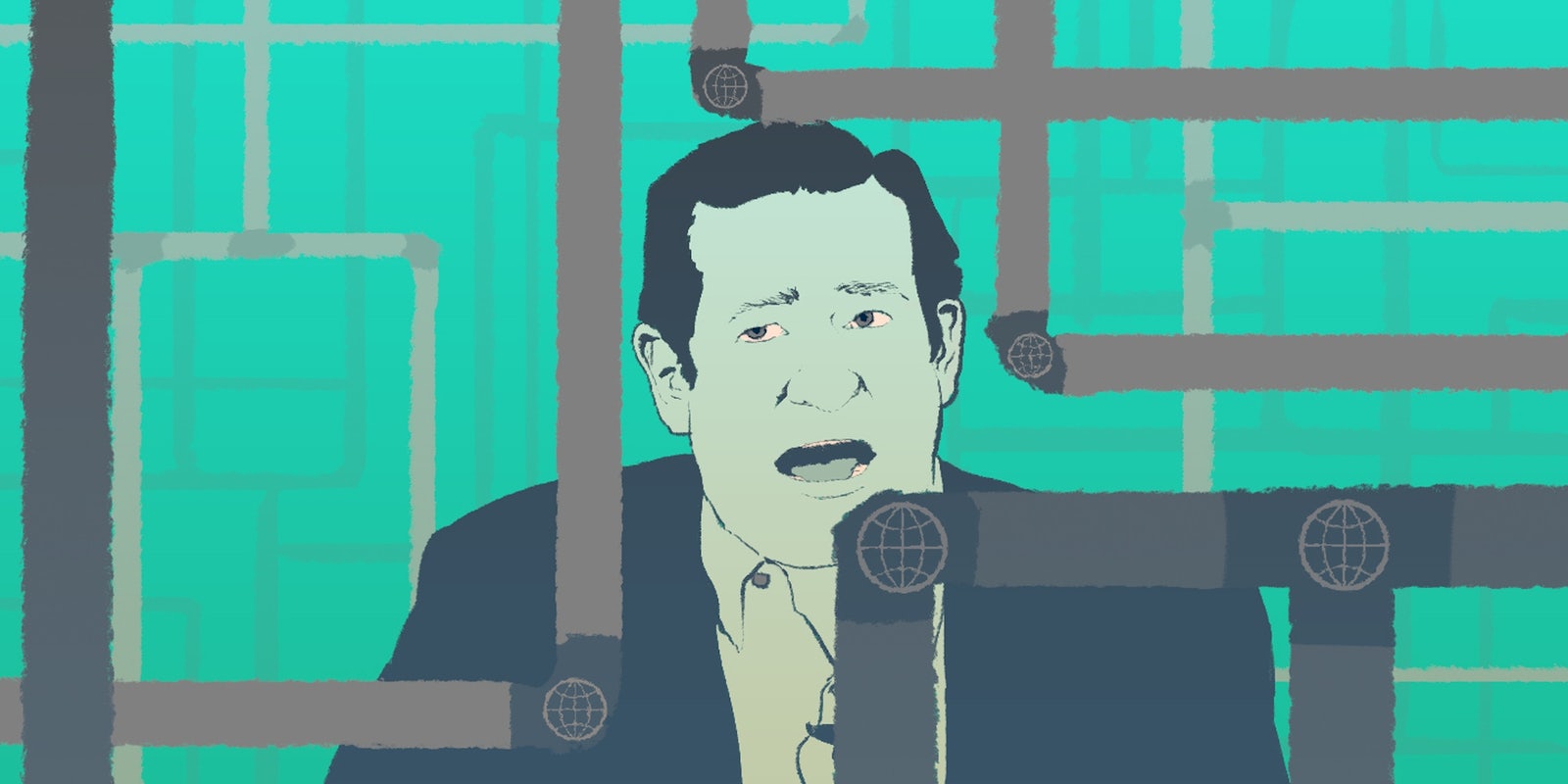Ted Cruz on Thursday attacked the FCC‘s net neutrality rules and said that the agency’s new oversight of Internet service providers “will end immediately” if he becomes president next January.
“I think it is a disaster,” the Texas senator said of Federal Communications Commission’s 2015 Open Internet Order, which gave the FCC the ability to prohibit ISPs from blocking, slowing down, or charging extra for access to certain websites or online services.
The Commission adopted the new rules last February, voting to reclassify the Internet in a way that placed it under Title II of the Communications Act of 1934. The Internet, like the telephone network, is now a “common carrier” system.
In remarks during a campaign stop, Cruz took aim at the FCC’s ability, under Title II, to regulate broadband Internet prices—a power that FCC Chairman Tom Wheeler has promised not to use, although Republicans are trying to legislatively block it anyway.
“Under Title II, they have deemed the Internet a regulated public utility,” Cruz said. “They are claiming the authority to regulate pricing and terms of sale.”
Cruz stepped onto shakier ground when he expanded his broadside on the open-Internet rules, alleging that net neutrality would force innovators to “go to government regulators to get permission to launch some new website, to do something novel on the Internet.”
That is categorically untrue. Nothing in the Open Internet Order requires website creators to get permission from the FCC before setting up shop.
Cruz’s campaign did not respond when asked what the senator meant, but the FCC pushed back sharply on his characterization of the rules.
“The FCC’s Open Internet rules do not require anyone to ask for government permission before launching new websites, services, or plans,” FCC spokeswoman Kim Hart said in an email to the Daily Dot. “The bright-line rules against blocking, throttling, and paid prioritization protect the ability of consumers to use their broadband connections to reach the applications, services and products they want, while encouraging continued innovation.”
Josh Stager, policy counsel at New America’s Open Technology Institute, said that net neutrality was about preventing the small businesses and bloggers Cruz praised from having their online activity strangled by large, often quasi-monopolistic ISPs.
“A handful of ISPs—Verizon, Comcast, AT&T, and others—have come to control such a large part of the Internet’s physical infrastructure that they can essentially act as gatekeepers of online activity, shutting out businesses and websites they don’t like,” Stager said in an email. “The FCC’s order is designed to prevent that from happening, and it’s working.”
“The reality is that small businesses and online startups asked the FCC for these rules,” he added. “Either Senator Cruz knows this and he’s being disingenuous, or he doesn’t understand how the Internet economy works.”
Cruz also said that the Internet “has been regulation-free” since its creation, which is not true. The Internet, which began as a military research network, very quickly attracted regulation in the form of the Telecommunications Act of 1996, the first major overhaul of the Communications Act, the law that contains the all-important Title II.
If elected president, Cruz promised, “We will keep the Internet entirely free of regulations, entirely free of taxes.”
This is not the first time Cruz has attacked net neutrality. He previously called it “Obamacare for the Internet,” a statement he doubled down on in his latest broadside against the rules. And he told the government not to “mess with the Internet” in a vine posted in November 2014.
In his new remarks on the Internet, Cruz also touched on the Commerce Department’s plan to transfer control of key technical functions over to an international body.
Since the founding of the Internet, the U.S. government has helped operate these functions—including the Domain Name System (DNS), which connects numerical addresses like 74.125.224.72 to domain names like google.com—through a contract with the California-based Internet Corporation for Assigned Names and Numbers (ICANN). But the Obama administration, under pressure from other nations to show that it does not want to control the Web, is preparing to end America’s exclusive relationship with ICANN.
“The Obama administration is trying to give the Internet away,” Cruz charged, echoing complaints from other Republican lawmakers about the consequences of the Commerce Department’s plan.
Update 1:29pm CT, Jan. 21: Added comment from New America’s Open Technology Institute.
H/T Politico | Illustration via Max Fleishman


